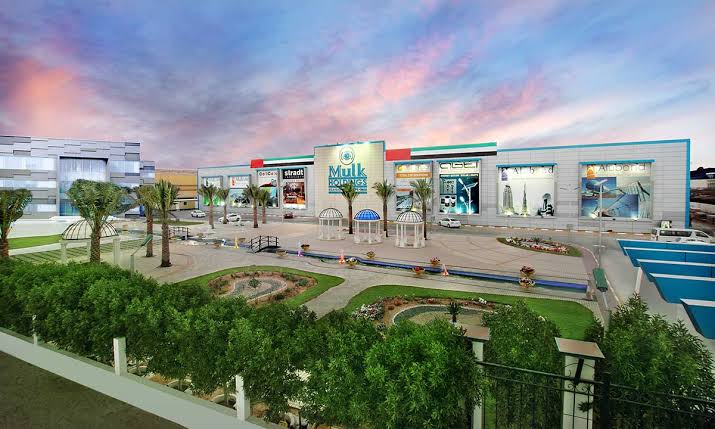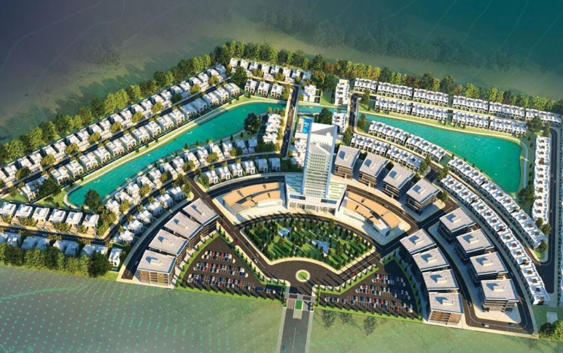Zim CyberCity: Inside Zimbabwe’s Plan to Build A $500 Million CyberCity

There are many conflicting meanings associated with the term “CyberCity.” To handle its vital infrastructure more effectively and efficiently, any city that systematically incorporates cutting-edge modern information technology into its entire functionality would be considered a CyberCity. The resultant environment is a well-run, clean city with intelligent, hard-working citizens, a thriving economy, responsible e-government, and a generally favorable setting for mobility and good quality of life for its citizens.
A lot of things come to mind when we hear the term “CyberCity”. Some associate it with technology, others see it as downloading speed or even IT companies Hub. They are all correct. These cities demonstrate a combination of adequate intellectual capacity and well-resourced institutions and infrastructures that are properly coordinated in an Internet-supported grid designed specifically to increase the efficiency of supply and demand for utilities, goods, and services for locals and visitors to the cities. The ultimate goal is to establish a symbiotic ecosystem in which the city’s infrastructure and residents cohabit in a generally effective manner with a diminished sense of expectation of the unknown.
Planning cyber cities are no easy task. It takes sophisticated systems and infrastructure to efficiently gather, analyze, and send data across a metropolis. For instance, infrastructure management and performance monitoring tools must provide teams with complete stack insight into hybrid infrastructures and apps. To prevent widespread interruption, it must enable city officials to promptly identify and address issues—across both fixed and wireless links.
Then there is the technology related to applications, web app monitoring, and user experience. The world is home to numerous locations that are regarded as sophisticated technology cities: Silicon Valley (U.S.A); Seoul (South Korea); Hong Kong (China); and now Zim CyberCity (Zimbabwe).
About Zim CyberCity
Emmerson Mnangagwa, the president of Zimbabwe, introduced Zim CyberCity— a new $500 million market for international businesses. It will be a cutting-edge mixed-use high-tech park, constructed outside of Harare, the capital of Zimbabwe, similar to Dubai. Mulk International, a multinational industrial company with offices in the UAE, is developing this.

Zim CyberCity, a 2.5 million square foot complex, is now being built in Mount Hampden, New Harare. The recently finished parliament building, all the ministry buildings, plus upscale residences and businesses are all part of Mount Hampden’s master plan. This is frequently compared to Dubai, United Arab Emirates Downtown, and Sheikh Zayed Road redevelopment.
Zimbabwean President Emmerson Mnangagwa was presented with the idea of Zim Cyber City by Mulk International during his trip to the UAE for the Dubai World Expo 2020. The president is the project’s patron and has given Mulk International the sole right to create a special economic zone for Blockchain technology and digital assets.
The project’s master plan calls for the construction of 250 townhouses, more than 80 luxurious villas, several apartment buildings, high-tech office space, a high-end shopping arcade, a 15-story commercial tower, and landscaped gardens, all within a gated community with high security and amenities like a health club and community center.
What the Initiative Offers
Zim Cyber City will make it easier for all persons and companies working in the community to obtain special window clearance for Blockchain and digital asset licenses and bank accounts, as well as modern office space and upscale housing. To provide inhabitants with the highest level of security, it will be equipped with 24/7 sophisticated surveillance technology that is directly connected to regional law enforcement agencies.
According to the Vice-Chairman of Mulk International Adnan Ul Mulk, Mulk International has worked carefully to study the market and get a deeper understanding of Zimbabwe’s culture and its wealth of potential.
“Mulk International has worked diligently to understand the market and gain greater insight into Zimbabwe’s culture and its bountiful opportunities. The depth of resources and advanced digital capabilities across industries gives Zim Cyber City concrete, long-term growth prospects.
“We are keen to witness Zim Cyber City’s role in the successful integration of blockchain and crypto technology and premium, residential living. I am thankful to The President, H.E Emmerson Mnangagwa, for his staunch support in making Zim Cyber City a project of national importance.“
